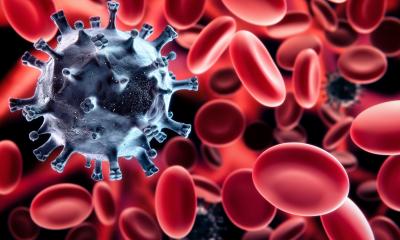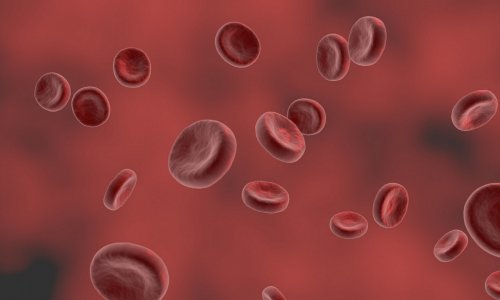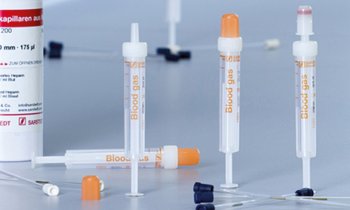Image source: Thor Deichmann from Pixabay
News • CVT risk evaluation
Thrombosis risk after Covid vaccination: actual infection far more dangerous, say experts
Researchers at the University of Oxford report that the risk of the rare blood clotting known as cerebral venous thrombosis (CVT) following Covid-19 infection is around 100 times greater than normal, several times higher than it is post-vaccination or following influenza.
The study authors, led by Professor Paul Harrison and Dr Maxime Taquet from Oxford University’s Department of Psychiatry and the NIHR Oxford Health Biomedical Research Centre, counted the number of CVT cases diagnosed in the two weeks following diagnosis of Covid-19, or after the first dose of a vaccine. The then compared these to calculated incidences of CVT following influenza, and the background level in the general population.
Full data are available from the Open Science Framework (OSF) website.
The Covid-19 risk is higher than we see with the current vaccines, even for those under 30; something that should be taken into account when considering the balances between risks and benefits for vaccination
Paul Harrison
The researchers report that CVT is more common after Covid-19 than in any of the comparison groups, with 30% of these cases occurring in the under 30s. Compared to the current Covid-19 vaccines, this risk is between 8-10 times higher, and compared to the baseline, approximately 100 times higher. The breakdown comparison for reported cases of CVT in Covid-19 patients in comparison to CVT cases in those who received a Covid-19 vaccine is:
- In this study of over 500,000 Covid-19 patients, CVT occurred in 39 in a million patients.
- In over 480,000 people receiving a Covid-19 mRNA vaccine (Pfizer or Moderna), CVT occurred in 4 in a million.
- CVT has been reported to occur in about 5 in a million people after first dose of the AZ-Oxford Covid-19 vaccine.
- Compared to the mRNA vaccines, the risk of a CVT from Covid-19 is about 10 times greater.
- Compared to the AZ-Oxford vaccine, the risk of a CVT from Covid-19 is about 8 times greater.
However, all comparisons must be interpreted cautiously since data are still accruing.
Paul Harrison, Professor of Psychiatry and Head of the Translational Neurobiology Group at the University of Oxford, said: ‘There are concerns about possible associations between vaccines, and CVT, causing governments and regulators to restrict the use of certain vaccines. Yet, one key question remained unknown: ‘What is the risk of CVT following a diagnosis of Covid-19? We’ve reached two important conclusions. Firstly, Covid-19 markedly increases the risk of CVT, adding to the list of blood clotting problems this infection causes. Secondly, the Covid-19 risk is higher than we see with the current vaccines, even for those under 30; something that should be taken into account when considering the balances between risks and benefits for vaccination.’
Dr Maxime Taquet, also from the Translational Neurobiology Group, said: ‘It’s important to note that this data should be interpreted cautiously, especially since the data on the Oxford-AstraZeneca vaccine come from UK MHRA monitoring, whereas the other data uses the TriNetX electronic health records network. However, the signals that Covid-19 is linked to CVT, as well as portal vein thrombosis – a clotting disorder of the liver – is clear, and one we should take note of.’
An important factor that requires further research is whether Covid-19 and vaccines lead to CVT by the same or different mechanisms. There may also be under-reporting or mis-coding of CVT in medical records, and therefore uncertainty as to the precision of the results.
Source: University of Oxford
15.04.2021











